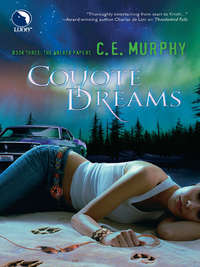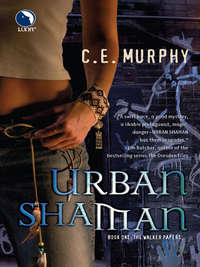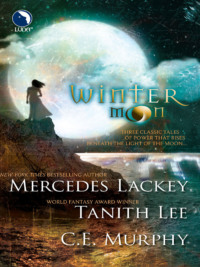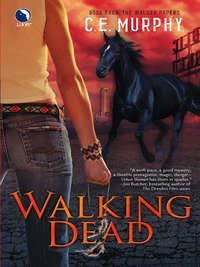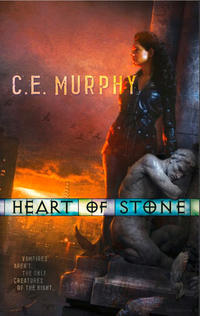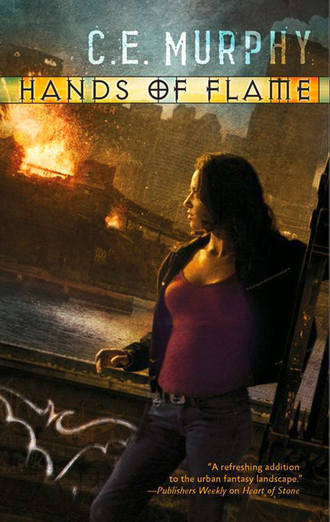
Полная версия
Hands of Flame
Breathless confusion pounded through Alban, counterpart to the pain the chains brought. Speaking helped: being spoken to helped. Even Grace’s clear pique helped push away the bleak, mindless rage. “I do not understand.” He kept the words measured, trusting deliberation over the higher emotions that heated his blood. “How did we come here? What are you doing? What did Biali want?”
“Grace has her tricks, and a few friends to call on when she needs to. I’m trying to stop a fight before it schisms your people,” Grace added more acerbically. “As for what Biali wants, you tell me.”
Alban breathed, “Tricks,” incredulously, then, distracted from the thought, said, “Revenge,” the word heavy and grim and requiring no need of consideration. “Revenge for Ausra.”
Grace stepped back with an air of sudden understanding, speaking under her breath. “So it wasn’t Margrit who saved herself after all. And Biali found it out.” She paced away, then stopped, hands on her hips, chin tilted up, gaze distant on a wall. “Then I’ve done what’s best, haven’t I?”
“What have you done?”
Grace turned, all leonine curves in black leather. “I’ve sent for a gargoyle jury.”
The countdown calendar was at sixteen hours, failing to take into account the after-court work Margrit returned to the office to do. She waved goodbye as coworkers slipped out, and gave the calendar a rueful glance. If she was lucky it wasn’t off by more than three or four hours.
She was alone at sunset, bent over paperwork that gave her a cramp between her shoulder blades, but it redoubled, then racked her with breath-taking shocks of pain. Semifamiliar images crashed through her mind in spasms, too brief and disconcerting for her to hold. They had the feeling of being seen through someone else’s eyes, as though she once more rode memory with Alban. Minutes after the sky went dark with twilight, concrete chambers finally came into resolution, body-wracking shudders fading away. Fingers clawed against her desk, breathing short with astonishment and dismay, Margrit struggled to recognize the rooms. Finally, sweat beaded on her forehead and hands trembling from holding her desk too hard, her own memory clarified where she’d seen them before.
Belowground, in Grace O’Malley’s complex network of tunnels under the city.
There were innumerable ways to enter those tunnels, but only one Margrit felt certain of. She stopped long enough to change shoes, then, still wearing the skirt suit she’d worn to court, left the office at a run.
Minutes later she scrambled over the fence to Trinity Church’s graveyard, all too aware that she had no good explanation if she was caught. She dropped to the ground easily, suddenly surrounded by headstones, some worn beyond readability, others as sharply etched as if they were new. Wilted flowers lay on a handful of graves, though an April breeze caught lingering scent from one bunch and carried it to her. The church itself was a dozen yards away, glowing under nighttime lights, lonely without its tourists and parishioners.
Paths brought her to an inset corner of the church near its front entrance. She glanced over her shoulder, nervous action, and mumbled an apology to the dead as she stepped over a grave and placed her palm against one of the church’s pinkish brown stones, pressing hard.
The scrape of stone against stone sounded hideously loud in the churchyard’s silence. Margrit held her breath, as if that would somehow quiet the opening door, and for a moment heard the city as it actually was, rather than simply the background noise of day-to-day life. Engines rumbled in the near distance, ubiquitous horns honking. The wind carried a voice or two, but most of the sound came from mechanical things.
The door ceased its scrape and she stepped inside it, looking guiltily around the churchyard again. If she’d designed a hidden door, she would have put it at the back of the church, not the front. She saw no one, though, and pressed the door closed again as she used her phone for a flashlight.
The light bounced off pale walls. Margrit blinked at the steep stairs that led downward, never having seen them so clearly before. The walls had been scrubbed, an inch of soot washed away, and the stairway was much brighter for it. She trotted down, curious to see what other changes had been made.
The room at the foot of the stairs was almost as she remembered it, though cleaner. Walls reaching twenty feet on a side had been washed free of their sooty blanket, and the cot settled in one corner no longer touched those walls. A small wooden table was also pulled a few inches away from the wall, its single chair pushed beneath it. Bookcases lined the walls, candles and candleholders set on them. Electric lights had been added, wires looping above the shelves. There was nowhere to cook in the room, nor any obvious ventilation. Only Alban’s books were missing, safe in his chamber in Grace’s domain.
She switched on the lights and tucked her phone back in her pocket before moving Alban’s cot to reveal the flagstone they’d escaped through. It was two feet on a side. Margrit sat down on the cot, dismay rising anew. She’d forgotten its size, and the incredible strength necessary to move it. Even in his human form, Alban was disproportionately strong. Margrit could barely conceive of his gargoyle-form’s strength limitations. Certainly her own weight was inconsequential to him. Half-welcome recollection flooded and warmed her, the memory of his hands, strong and gentle, holding her, guiding her, seeking out her pleasure. In flight, in love, that strength had been sensual.
And in battle it had been terrifying. Margrit made fists and opened them again deliberately, trying to push away the remembrances, and stood to examine the stone. She had no other way to get into Grace’s tunnels, so she would have to lever the stone out somehow. Grooves marked two sides of its sides and she slid her fingers into them, then laughed with frustration at the uselessness of her attempt.
Stone grated against stone again, sound rolling down the stairs. Margrit froze, eyes wide, then spun around in a circle, searching for somewhere to hide. There was nowhere, save under the cot, and for some reason the idea struck her as absurd to the point of embarrassment.
“Pardon me.” A terribly polite voice came from the direction of the stairwell. Margrit, for all she knew someone was coming down the stairs, shrieked in surprise and whipped around again.
An Episcopalian priest with an erratic white beard peered around the corner. “Pardon me,” he repeated drolly. “I hate to interrupt, but I saw you come down, and I feel rather obliged to tell you that—Er, Ms. Knight?”
“Father.” Margrit squeaked the honorific, utterly at a loss to explain herself. “I’m, um. Oh, God. Uh.”
“Merely a representative,” the priest said cheerfully. “Ms. Knight, what an unexpected pleasure. What are you doing here? I haven’t seen you in a while. Either of you,” he added more calculatingly. “How is Alban?”
“In trouble,” Margrit replied in a burst. “That’s what I’m—I needed to get into the tunnels. I didn’t even think to come ask if I could come here. I would have, if I had.” The old man’s kindness and his awareness of both Alban’s presence beneath the church and Alban’s secret had been evident the time or two Margrit had spoken with him.
“I’m sure you would have. I told you I grew up in this parish,” the priest said after a moment’s thought. Margrit nodded, but he went on without heeding her, and gestured toward the stairs, clearly expecting her to follow him. “I used to get in trouble exploring the church grounds. The tower in the corner of the graveyard held endless fascination for me. Have you seen it?” He led her back to the graveyard, striding across it with confidence, so familiar with the paths that their ruts and joinings had no fear for him, not even in the dark. Margrit scurried to keep up, unaccustomed to walking at his clip and unwilling to start running to match his pace.
“Sure. I always wanted to climb it.”
The priest threw a delighted smile over his shoulder. “Exactly. So I did.”
Margrit stumbled over a corner, more from surprise than treacherous footing. “Didn’t you get in trouble?”
“Well, of course, but not until I got caught. I was nine the first time I climbed it and fourteen when I got caught. But by then I’d found all its secrets. I should write a history,” he said wistfully. “The secret history of Trinity Church. There are so many stories to tell.”
“Not all of them are yours to tell,” Margrit said softly. He gave her a sharp look that softened into agreeability.
“True, true, that’s true. Still, wouldn’t it be wonderful to read? Now,” he said, stopping at the base of the bell tower. “I’m far too old to go climbing this thing, especially at this hour of the night, but you’re young and healthy. You should be fine. Be careful on the drop down. It’s a doozy.”
“What?” Margrit stared from the bell tower to the priest.
The priest smiled. “I told you I imagined dragons, Ms. Knight. This is where I fought them. Beneath the tombs, where God’s power bound them. Evil could stain Trinity’s walls and make them black, but it protected the faithful and I imagined myself helping it. There are tunnels under the bell tower, just as there are from Alban’s room. After his room was discovered, I risked my old neck and went into the tower one more time to see if I could find a back door into his room from it. Didn’t manage, nor could I find it from inside his room, but if I were he, I’d have had more than one way out.”
“Or in,” Margrit murmured. The priest nodded.
“There’s a clever mechanism in the floor of the tower. The stone to trigger it is part of the floor, third from the right if you’re facing north, two down from the wall. Press down hard. It takes more than body weight standing on it to set it in motion.”
“What does it do?”
He gave her another sunny smile. “I wouldn’t want to spoil all your fun, Ms. Knight. Good luck. Be careful down there. And take care of Alban.” He nodded, making the admonishment a command, and stepped back.
Margrit blinked, then handed over her phone, letting him provide light for her to climb with. At the top of the tower she turned back and the priest tossed up the light to her. “North is to your left.”
He saluted and strode off through the graveyard, leaving Margrit to drop into the tower’s hollow center. She gnawed her lower lip, watching him hurry away, then turned her attention to the tower bottom. It looked slippery, grown over with moss or algae, and her quiet laugh was hoarse. At least if she injured herself jumping down, Daisani’s gift of healing blood would make certain she’d recover quickly.
She jumped before she had more time to think, landing with as much ease as she had in scaling the churchyard gates. Breathless, she found the stone the priest had describe and pressed hard.
The bone-rattling scrape that she’d expected didn’t sound. Instead the entire floor lurched, sending her stumbling. Margrit dropped to her knees, fingers spread on the floor for steadiness as a mechanism clicked, clockwork sound of chain rattling through gears. The floor lowered, smooth after the initial jolt. She tipped her chin up, watching the walls roll away. Chains came into view, links thicker than her thumb and tarnished, but not debilitated with age, and she wondered if someone kept them in working order.
As if being lowered into the unknown wasn’t bad enough. She had to wonder if the chains would break and drop her into the unknown. Margrit pulled a face and glanced at the floor beneath her knees. The priest had seemed confident. Of course, Margrit wasn’t certain he weighed as much as she did, which sent a chortle of discomfort through her. Of all the times to suddenly be concerned about her weight. It seemed typically female.
The stone elevator banged to a stop before she could tease herself further. Margrit pushed to her feet and stepped forward, flashlight picking out a black-edged tunnel.
“I’d fight dragons down here, too,” she murmured to the absent priest. “Looks perfect for it.”
“Oh, good,” a woman’s voice said dryly. “That’ll be what we’re asking of you, then.”
SIX
MARGRIT YELPED AGAIN, then slumped in exasperation. She’d never thought of herself as a good scream queen, but that opinion was fast formulating. “Grace. God. How’d you get here so fast? How’d you know I was here?”
“Grace has her ways.” The blond woman came out of the darkness, bleached hair all but glowing in contrast to the black leather she wore. “Looking for Korund, are you?”
“I—What?” Margrit straightened, hope searing hot enough to take her breath. “Do you know where he is? Is he all right?”
“Depends on how you define ‘all right.’ I know where he is, sure enough.” Grace’s accent swam across the Atlantic, burrowing into what sounded like North London to Margrit’s ear, but she’d never been able to pin the vigilante woman’s origin. Transatlantic, but beyond that, her rash mix of dropped letters and sentence structures came from all over the British Isles. Margrit doubted she’d answer if asked directly. “But he says you were there this morning.”
“Biali chained him.” Strain made Margrit’s answer rough. “So I guess he’s not all right, but he’s safe? You got him off the roof? How? How’d you even know he was in trouble?”
“Oh,” Grace said airily, “dead things talk to Grace, and stone’s got no life in it. All I had to do was hold that cold form close and wish us somewhere else, love.”
Margrit stared at her, uncertain whether to give in to laughter or exasperation. “Of course. God. I can’t even remember the last time I got a straight answer from somebody.”
“When was the last time you gave one?”
Margrit rocked back on her heels, breath suddenly short, and looked away. “Yeah, well, I guess it’s a better answer than ‘Grace has her ways,’ but you’re insane, you know that?”
“Says the girl with the gargoyle lover.” Grace sniffed. “You’ll be wanting to see him, then.”
“And I need to see Janx,” Margrit said uncomfortably, too aware of the tension between dragonlord and vigilante.
Grace’s eyebrows—light brown, not matching her hair or especially disagreeing with it—rose in fine arches that preceded a laugh. “Do you, now. Calling in your favor now, are you? And for who? I wonder. Not for me and mine, for all you promised you’d keep him out of my territory. Do you know how fast I’m losing them to him? I’ve got no flash, not next to the likes of him.”
“You’ve got heart. The smart ones’ll stick with you.”
“Smart goes a long way in an organization like Janx’s. Smart means picking choices, not acting out of loyalty.”
Afraid Grace was right, Margrit hesitated, then shook her head and bulled forward. “I don’t want Janx screwing up your kids any more than you do, but there’s a hell of a mess building, and I need his help. As for getting him out of here, if you show me where he is, I’ll—” Margrit drew breath through her teeth, not liking what she was about to suggest, but abruptly willing to make the bargain. “I’ll turn his location over to the cops. They’re still looking for him, so all you need to do is get everybody clear when they come down.”
“All. That’s a big word, for not many letters, love. You broke a promise to me once.”
“Come on, Grace. I promised I’d do my best, not that I’d keep him away from you. Everything ballooned out of control, with Malik dying and the House going up in flames and … I’m sorry, okay? I didn’t mean for you to get involved, and I’m sorry. I’ll call Tony the first chance I get and give him Janx’s location, if you’ll just show me where he is.” Whether she’d warn the dragonlord she was going to do that, Margrit didn’t yet know. She’d deliberately saved him from arrest once, and as uncomfortable as that was, she still couldn’t imagine forcing one of the Old Races through a human court of law.
Grace studied her a long time before giving a short nod. “All right, then. Into Grace’s kingdom, love, but you’ll owe me for this, Margrit. You’ll owe me large.”
“I know.” Margrit curled her hands into fists as she fell into step behind the other woman. “I know.”
Tumblers fell, ricocheting sounds that warned of visitors. Alban lifted his head heavily, no longer raging and no longer constrained, but understanding why Grace had locked the door so thoroughly. It wasn’t to keep him in, but to keep others out. He’d given up trying to transform, though all that prevented him was constant, angry awareness that each attempt would bring fresh agony. Caught in his stony gargoyle form, it was safer by far to keep him locked away where none of Grace’s street children could accidentally come upon him and have the scare of their young lives.
Weariness lowered his head again, a sudden dull lack of interest in the world beyond his prison door. Not in two hundred years of solitude, since Hajnal’s death, had he felt so alone. All of that time his isolation had been of his own choice. Finding it impressed upon him chafed more than he’d imagined, and it was only a harbinger of what his future would hold. No gargoyle jury would forgive him for taking Ausra’s life, nor Malik’s. Moving to protect another and accidents were no excuse under Old Races law. The exile he’d chosen for himself would be ratified by a council of elders, and the idea, coupled with the throb of iron bound to his stony skin, exhausted him.
The best he could do was meet his fate with dignity. It was very early for Grace to return with the jury—gargoyles couldn’t travel during the day, and the only two in New York were reluctant guests in Grace’s tunnels—but surely she would come with news of when and where the trial would be convened. Alban pushed himself upward, wings folded at his back in a soft, stony cloak, and waited on his guest.
“Alban.” Margrit flung herself through the door with the abandon of a child, relief stealing her breath. He grunted as she crashed into him and held on hard, hoping she could impart some kind of comfort and protection with her own touch.
His scent was almost familiar, more tanged with metal than she remembered, but the chaos of the day faded as she held on to the gargoyle with all her strength. It was irrational to believe that being with him would make everything all right, no matter what crossed their paths, but she floated on that comfortable deception as long as she could. “You’re all right.” Her words were muffled against his chest, barely audible to her own ears. “I could kill Biali. Are you all right?” She pulled back without releasing her hold, eyebrows pinching with concern.
The chains Biali had flung around him had become a part of him. Bumpy, ugly links were sealed into his throat and held his hands against his chest like broken wings. Margrit cried a protest and tried to touch the mass as Alban shook his head.
“Margrit, what are you doing here?” His voice was distorted, gravel scraping iron, but the gentle astonishment and relief in it made Margrit bite her lip against tears.
“I spent half the damned day trying to rescue you,” she whispered, almost as hoarse as Alban himself. “Alban, this is horrible, can’t I—”
“You can do nothing, Margrit. Only Biali can unwind these.” Uncertainty colored his voice. “At least, I hope he can.”
“Why couldn’t he? He bound you—”
“But legends of our captivity tell stories of locks and keys, not iron coming to life under a touch to free us.”
“So go into them and find out more! We have to be able to get you free!”
Alban hesitated, then lowered his head in agreement. Margrit bit her lip, watching him as his eyes closed. She knew she asked for too much: Alban wasn’t welcome in the gargoyle memories in the best of circumstances, but maybe he’d be allowed in the worst.
Instead he flinched back with a gasp, hands spasming so that the iron lumped under his skin rippled. “It prevents me.” His voice came more hoarsely than before, shock and pain in it. “The memories are cut off by the iron.”
Margrit knotted her hands over Alban’s, anger burning horror away. “I’m going to take a sledgehammer to Biali at high noon, I swear to God. How could he do this to you?”
“He loved Ausra.” The simplicity of the answer silenced her. “As he loved Hajnal. I suspect he intended an eye for an eye in the matters of their deaths.” Humor ghosted over his expression and he lifted his hands as far as he could, gesturing at his own face and reminding Margrit of Biali’s scars. “I suppose that seems fair.”
Sick, laughter-filled disbelief crashed through her. “How can you be making jokes? Even bad ones?”
“You’ve come.” Alban sounded surprised at himself. “It seems that your presence eases even the worst of my fears. Margrit, forgive me for not stopping his abduction of you—”
Margrit opened a palm and threatened Alban’s shoulder with it. “Forgive you? There’s nothing to forgive. It’s not your fault Biali’s stone-cold crazy.” She choked on her last words, hysteria swilling just below the surface. “Stone-cold crazy,” she mumbled again. “Guess he’d have to be, wouldn’t he?”
Alban sighed, dispelling her amusement. “I’m not certain he’s mad. He’s lost a great deal.”
“You can give him the benefit of the doubt if you want,” Margrit growled. “I’m looking at you standing here in unbreakable chains, and I think he’s batshit nuts and dangerous. Maybe not like Ausra was, because he probably doesn’t want to expose every single one of you to the human race, but he encouraged her to go after you, and now he’s come after you himself. You said gargoyles don’t go crazy, but you’re wrong, Alban. Whether it’s mad with grief or just plain bonkers, it doesn’t matter. This is insanity.”
“I agree.” Grace’s voice came from behind them, startling Margrit out of her passion. She’d forgotten the other woman had walked her to Alban’s cell, and now turned to see Grace leaning in the doorway. “Which is why I called for a jury.”
“The conclusion is foregone, Grace.” Alban sounded calm, but Grace snorted.
“You think I’ve called them here to hang you. It’s the both of you I’ll see up on trial, Korund. You’ll stand the test of ages, and we’ll see who’s in the wrong and who’s in the right.”
“The test of ages.” Alban shook his head, echoed words spoken softly. “How do you know the things you know, Grace O’Malley? That test belongs to my people, not humanity.”
“As if you’re the first or last to judge a man by a trial of hand, heart and head. Grace trades in information, Stoneheart. You should know that by now. I know a lot I’m not supposed to.”
“Grace, I have broken laws we hold dear. I am guilty. I will not stand the test.”
“God save me from puritanical heroes,” Grace muttered. “I’ll ask for it anyway, and you’ll stand it or you’ll stand a fool.” She thinned her mouth, glowering at the gargoyle. “I’d like to say I think you’re not one, but I’d also not like to make a liar of myself.”
“Excuse me.” Margrit broke in, voice high. “Would either of you like to tell me what the hell you’re talking about?”
Grace waited on Alban, but when Margrit turned to him, his expression was impassive as he stared at the vigilante. Margrit made a sound of exasperation and turned back to Grace, who spread her hands.
“He’s to prove himself worthy in a three-stage battle. Strength, wit, compassion. The one who wins is honest or innocent in—” Grace made a throwaway gesture, as if knowing she spoke inaccurately, but choosing the simplest phrasing to convey her thoughts. “In God’s eyes.”
“A witch trial?” Margrit’s voice shot up again, incredulous. “This isn’t the fourteenth century, Grace!”
“It’s gargoyle tradition. Ask him.” Grace cut a nod at Alban, who shifted enough that Margrit recognized an uncomfortable admission in the movement.
“I don’t care if it’s tradition, it’s stupid. Nobody in their right mind would settle—”
“You’re the one who thinks Biali’s lost his mind,” Grace said, suddenly chipper.
Margrit curled a lip and tried again. “No one in this era—”
“My people are not from this era, Margrit.” Alban broke in, voice a low rumble. “But it makes no difference. I will not participate in the test.”


